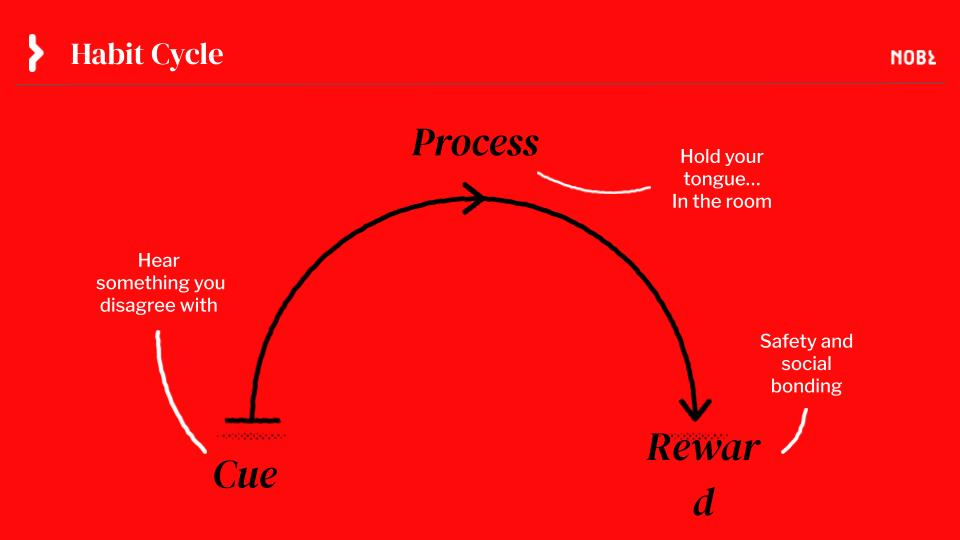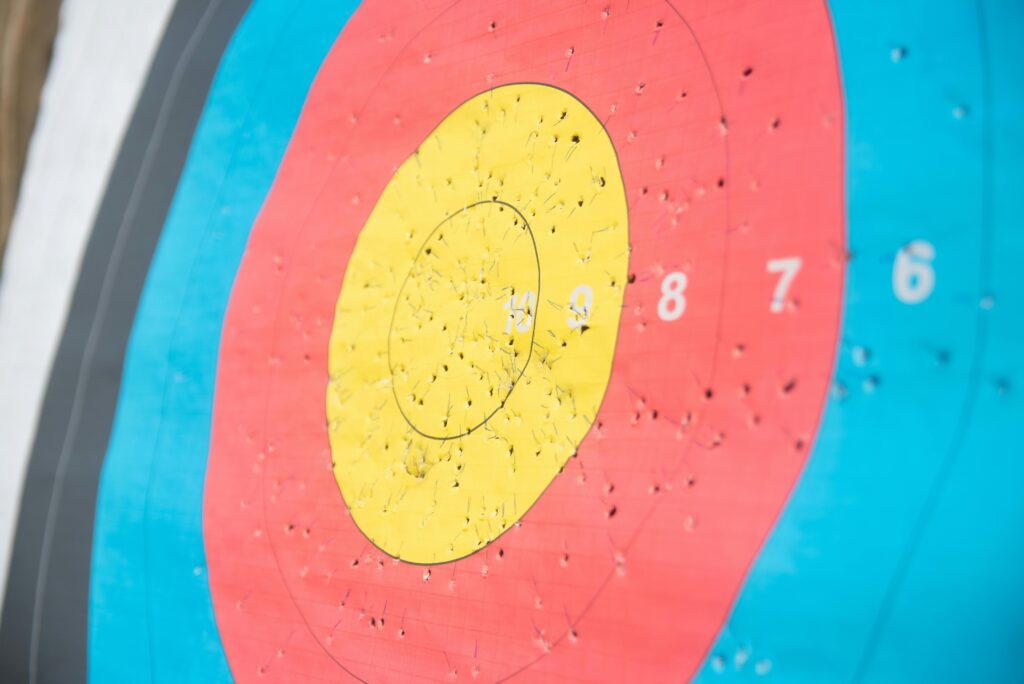At the individual level, change myths persist: people think that in order to change, you need to go through some kind of spiritual awakening. Attitudes don’t change behavior, behavior changes Attitudes. People also think you need herculean willpower to change. This isn’t true either. Willpower fatigues and runs out. You need tools that work even when you’re exhausted by change itself.
The key to behavior change, and organizational change with it, is to develop new habits. Habits are the small and mighty interventions that spark meaningful change. These tiny choices stack up and come to define who we are and how we present ourselves to the world. If you want to change who you are or how you work together, start with your habits. If you want to change how an organization works, start with collective habits or rituals.
A habit can be broken down into three parts:
- The Cue: the trigger, an external event that provokes behavior
- The Process: the routine, which becomes automatic over time
- The Reward: the emotional or physical feedback that makes you notice the cue even more next time

For instance, a bad habit might be that in a meeting in which you disagree with a decision (the cue), you hold your tongue but complain in the hallway afterwards (the process), which feels like social bonding (the reward). In reality, this erodes candor and trust on a team and slows down action—because you usually end up having to have the same conversation ten times before action happens.
So how can we change those habits?
- Get conscious of your habits. Again, that doesn’t mean that you need a spiritual awakening (i.e., embracing a completely new point of view). You just need to be more aware of why you react the way you do. If you find yourself venting with coworkers after a meeting, reflect on what triggered that response. Do you always react that way? Then ask yourself if there’s another way you can respond while still keeping the reward.
- Use an existing cue. People make a big mistake when trying to change or add a habit: they don’t give themselves a cue to build the new habit from. Look at all the possible cues in your day and tie a new behavior to one of these. If your goal is to be more candid at work, for example, don’t just say “Be more candid at work!” Be specific with something like, “In our Tuesday strategy meetings, I’m going to be more candid with my thoughts on our priorities as a team.”
- Start small. Changing behavior can seem like a lot at first, and we tend to overestimate our abilities. Start with a small behavior and build outward from there. Don’t start by going to the gym, start with a simple walk up and down the block. Build on your success rather than starting with failure.
- Repeat, repeat, repeat. Habits take time to, well… habituate. Unfortunately, it’s more like 60 days for a new habit to take hold rather than the 21 days we’ve heard about. But don’t get down on yourself for small misses. Resilience is key, and beating yourself up doesn’t help your resiliency.













